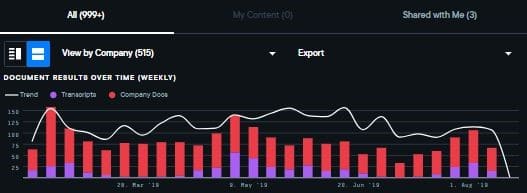The rate of change across ESG/Sustainability is staggering. It’s tough for company boards and management teams to get ahead of the curve, especially for small and mid-cap companies. It has become effectively non-optional for company leadership to be aware of these trends and anticipate appropriate company positioning.
Relevancy and focus
Cutting through conflicting third-party inquiries while following core mainstream ESG developments is challenging. There are simply too many questionnaires and reporting frameworks to consider responding to all of them. Smaller companies can learn from larger companies that already have had to establish an internal approach to questionnaires.
Meanwhile, maintaining perspective and purposeful conviction is critical to each company’s unique positioning, priorities and appropriate strategic communications and continuity.
Having the sense to know when to clearly state “no,” “not relevant,” or “not material” to a question or key performance indicator metric is important in order to not leave raters/rankers wondering. Absence of response leaves a void that can be open to interpretation and can be misconstrued.
Getting on the offense
Switching to offense from defense, one can get a sense of how companies are trying to actively communicate with the investment community on ESG/Sustainability matters via press releases, on calls, and in conferences.
Resource: IR Guide To Earnings Research With Augmented Intelligence
A quick AlphaSense search of U.S. companies for ESG references across press releases and transcripts over the last six months found mentions from more than 500 companies across 11 sectors and 65 industries. Of those mentions, 473 were found in quarterly earnings press releases.
Note: Review to eliminate boilerplate disclaimer references should be done to narrow the results when the effort can make sense using narrower search criterion.
These communications avenues are much faster to deploy than much larger sustainability report development efforts.
Food for thought
Smaller companies can manage costs associated with developing their own unique ESG strategy by studying what larger sector peers have done and by engaging an outside advisor to help get internal teams up to speed on coordination and tracking trends.
Find the time and make the investment to research and develop an ESG/Sustainability vision and strategic roadmap for your company in order to ensure you are driving your own proverbial bus with purpose and internal direction to be on the highway — and others aren’t driving your teams in circles.
Pamela Styles is principal of Next Level Investor Relations LLC, a strategic consultancy with dual Investor Relations and ESG / Sustainability specialties.
Want to learn more about gathering ESG intelligence with AlphaSense? Download our guide “Sustainable Success: Understanding ESG.”






